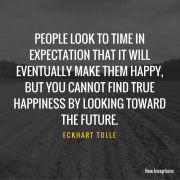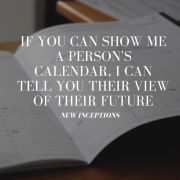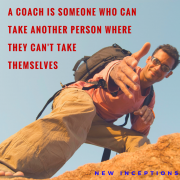It’s November and many people’s minds are on winter coming up. I know as I’m looking out the window, it’s already that wintery gray with occasional yellow leaf still hanging on a tree. While gazing out there, I find myself asking, “Didn’t we just have winter? What happened to summer?!?”
For many people, the changing of the seasons suggests that change is needed in their lives. They could be thinking a number of things. In fact, you might place me with the bunch that says “I’m not taking another one of these! It’s time to move south!” However, some people actually make the jump.
Another jump that might be made during the change of the seasons, and more specifically in the fall, are career changes. For whatever reason, people regularly change careers in the fall. (Personally, I don’t know why that is. Any thoughts? Is it related to the fiscal year ending?)
Like many transitions in life, there are professionals that are available for hire that can help you with your change of career. These people are called Career Coaches.
Signs You Need a Career Coach
You know, I believe that if you want to be someone you’re not, then you’re going to need help to get there. There are different types of people who can help you get to the next level. Those that are direct and those that are indirect. Examples of people who are more direct in helping others are teachers, managers, and leaders. Examples of indirect helpers would be counselors, mentors, and finally coaches. Coaches being the most extreme of being indirect. To me, a coach is someone who can take another person where they can’t take themselves. I say this because I think people can teach themselves how to do stuff. However, I don’t think they get out of their own head and look at a certain situation from another perspective too well.
I mean, wouldn’t it be nice if we could fix mental blocks we might have and be better at something? To give ourselves that extra push to get out of a particular comfort zone? The truth is that while we like to believe that we’re great at making ourselves better, more often than not, that isn’t always the case. If we knew what was keeping us from going to the next level, then doesn’t it make sense that we would have made that adjustment already and gotten there?
That said, here are a few signs you should be able to recognize as a signal that it’s time to get a career coach.
- You feel like you’re spinning your wheels in your current career or position.
- You feel like you’re not given a chance to prove the person you believe yourself to be.
- You feel like you have problems with meeting new people in professional settings.
- You’ve been out of work for a long time and feel that you might run out of runway to get another job, or start a new career.
- You feel like your job and your co-workers jobs are possibly about to be cut.
While this list isn’t extensive, I believe it kinda gives a valid barometer of the things you should be asking yourself “Do I feel…”. If the answer is yes, then it’s time to start looking.
Choosing A Coach
Just like there are many kinds of doctors, there are many kinds of coaches. And believe me, they come with all kinds of shapes and sizes. While many of us can help with general stuff (resume and coverletter writing, interviews, networking, etc.) many us specialize. For me, I like working with millennials who want more in life and are thinking about eventually doing their own thing. Other coaches might focus with people with ADHD or people interested in a STEM field. Yet others might focus with women or those who are thinking about being semi-retired after they leave their current position.
So think about what kind of person you are first. Then think if the coaches you’re looking at fit that description.
Next, think about what you want to get done. What do you want them to help you with? As I said, I like working with people my own age who are wanting to be an expert in the work they have a passion for. And while I can help you do general job hunting stuff, it’s not my bread and butter. In fact, when people want to acquire a job in a field I have no clue in, I generally pass them on to other coaches.
So get a list of 5 coaches that might be able to help you with what you want to get done.
Once you have that last part figured out, you need to interview them. Many of us offer discovery sessions if we expect to be working with people for 6 or more sessions – so that would be your opportunity. (If they’re only going to work with you for 3 to 6 sessions, you might need to find another way.)
Questions that you might ask during this interview include:
- What should I expect from working with you?
- Can you share success stories? (Focus on whether they’re describing you in these stories.)
- What’s your fee structure like? (Find out if they charge by session, by hour, by month, or a combination of the three.)
- How would you describe your coaching style? (Again are they more direct like a teacher or are they going to help lead you to your own answers? Which one do you have time for?)
Working with a Coach
Once you have selected your coach and it’s time to start working with them, there’s a few things that you ought to do to make your time count with them.
Prepare for every session. You’re paying for this session. So think about how you’re going to get the best of it.What kind of learner are you? Do you like to write notes? Do you need to record the sessions? Maybe you should get any resumes or past documents you’ve prepared in getting a job. Come prepared with a list of questions, ideas, and/or notes you’ve been thinking about.
Keep communication lines open. If you have any personal challenges with something, let your coach know. Are you having financial issues? Perhaps you’re going through some relationship problems. Or maybe you’re struggling with something the coach said. These are things that they need to know to help you craft the best plan possible. So let your coach know about them in a tactful way.
Assessments aren’t everything. If you know me, you should know I’m a huge fan of personality assessments. The main reason is because I think they helped me realize what I should have gone to school for. However, I need to make sure I emphasize “helped”. Everyone is different. And just because you have the same personality type, or the same believes, or the same values as someone else, doesn’t mean you have to be a carbon clone of that person. You’re going to have different experiences, skills, and thoughts than that other person. Let all of those combine to figure out what you’re true calling is.
Rome wasn’t built in a day. When building a skyscraper, construction companies will spend just about as much time building the foundation as they do building the actual building itself. Why is that? Because it needs to support all that weight.
This is true of coaching (and many other processes in life that are worth pursuing), too. Sometimes we’re building something so big we won’t realize it. We’ll hit a plateau and be frustrated one day, and the next we’ll feel that we’re making great strides in our life. The thing is that there’s so many variables in making a career transition that it’s really hard to tell exactly how long it will take for any particular individual – let alone everyone. So results will vary.
Expected Results vs Actual Results
Again, results will vary. Everyone is different. Realize that just like a player on the field will accumulate 120 yards one day and another receiver in that same system will go only 15, there are many different variables as to why that happened. Perhaps the player didn’t have as many opportunities to catch the ball. Or perhaps he dropped one or two of the passes that were sent his way. At the end of the game, they’re on the same winning team and they still won.
Likewise, your coach is putting you through the same system they’ve put others through before as well. However, you’re going to be starting from a different starting point and have different motivators. While your coach is giving you the strategies and guidance to make great plays, in the end is up to you to be that MVP. You’re the one that has to complete what is asked of you.
Homework:
Like all my other posts, here’s something for you to do right now with what you’ve just finished reading.
I want you to think of 3 things that you’re happy about from your current position. Then what are 3 things that frustrate you about your career.
Now, from those 3 things that frustrate you, what is one thing you’d love help with? List that one thing below. We’d love to see what kinds of things you guys are struggling with. Hopefully we’ll be able to help! (If you want our help in particular, you can find out more about our services here.)









